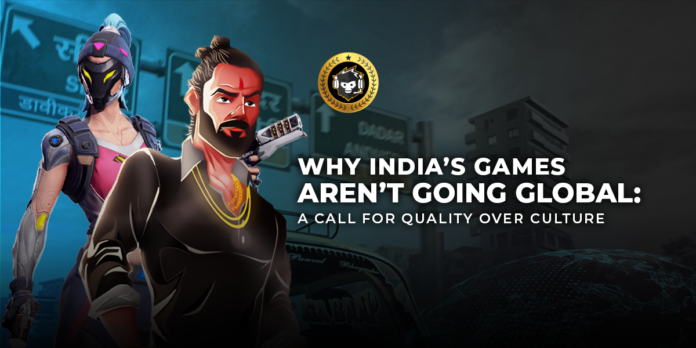Are Indian Video Games Trying Too Hard to Be Indian?
The gaming industry in India has expanded substantially, driven by a young demographic, smartphone penetration, and the rise of esports. Indian studios like SuperGaming, Gametion, and nCore Games are looking to make it big in the game development space but their recognition remains elusive globally despite a large presence in India.
The industry is largely built on the freemium model, which enables broad access but often caps development budgets and limits the ability to innovate with large, intricate projects. Many studios are incentivized to create “light” games that focus on quick, accessible content that aligns with mobile gaming preferences but not necessarily with quality benchmarks found in PC or console markets.
However one of the major criticisms raised by the Indian video game community is that Indian developers often infuse games with distinctly Indian elements, from mythological epics to traditional folklore. While this approach brings a unique flavor, it can make games feel overly localized, narrowing their appeal. In many cases, the Indian gaming experience becomes a thematic repetition of Indian gods, temples, and mythical settings. There is also the issue of games focusing too much on the Indian-ness.
While this might attract a domestic audience, it risks alienating international players unfamiliar with these narratives. The disconnect can make the gaming experience feel too specific, and even forced, limiting its global potential. The oversaturation of cultural themes risks making Indian games feel more like cultural exhibits than compelling, immersive experiences.
Moreover, cultural elements that resonate deeply with Indian audiences can often be too nuanced for global players. Black Myth: Wukong was a groundbreaking moment for the, symbolizing the potential for high-quality, culturally rich games to resonate worldwide. Black Myth: Wukong has sold over 21 million copies globally on Steam and it led to retailers running out of PlayStations to sell in China, a primarily mobile market. India needs something of the same caliber to put itself on the game development map.
Successful games like Wukong, regardless of origin, share a set of core principles that resonate universally. At the heart of any standout game is solid gameplay—fun mechanics, intuitive controls, and a satisfying progression system. International hits like “The Witcher” or “Assassin’s Creed” weave culturally specific elements seamlessly into a universal framework, prioritizing solid mechanics and storyline over cultural focus. These games become beloved not because they are Polish or French but because they appeal to universal themes, complemented by cultural flavor that enriches the experience.
Indus launched to middling reviews with a 3.3 user rating on Play Store after securing over a million downloads on Google devices. The iOS version of the game is sitting at a 3.1 rating with over a thousand user reviews highlighting the need for better optimization and refined mechanics.
Mumbai Gullies is yet another title that wants to replicate the cities of Mumbai in a Grand Theft Auto-like setting. While Indian gamers will undoubtedly appreciate one of the most important cities of the country being represented in a high-budget game, if the title does not stand on its own two feet with solid gameplay, story and optimization, it will fall flat.


